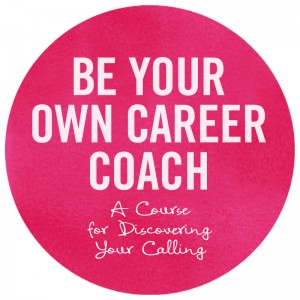 Who couldn’t use some guidance, motivation, or a fresh perspective on their career now and then? Working with an experienced career coach is a great way to define and achieve your goals – but if that’s not an option, you can always borrow some of their wisdom!
Who couldn’t use some guidance, motivation, or a fresh perspective on their career now and then? Working with an experienced career coach is a great way to define and achieve your goals – but if that’s not an option, you can always borrow some of their wisdom!
Here, two career coaches share their top tips and techniques which you can apply yourself.
1. Make (and protect!) the time
‘For many people, simply booking a meeting with a skilled careers professional is enough to give them a boost of motivation,’ says Sarah Archer, co-founder of CareerTree .‘Taking yourself seriously is the first step towards making your dreams a reality.’
Even if working with a career coach isn’t possible, you need to make a firm commitment to invest in yourself.
‘Start by ring-fencing some time in your diary, and guard it fiercely. It’s easy to let other priorities in your life take precedence, and you need to keep the momentum going once you embark on the journey,’ says Sarah.
2. Reflect on your career – then challenge your opinions
The process of reflecting on your work-life to date is easier with an experienced careers coach – who can tease out information by asking the right questions and challenge your statements – but that doesn’t mean you can’t work out some of the answers for yourself.
‘Start by giving your career an MOT to work out what needs attention – there are lots of resources online or in books that can help. Alternatively, list the positives and negatives of your career and look at where the balance lies,’ suggests Sarah.
‘Be prepared to challenge your preconceptions and opinions. It’s easy to fall into a pattern of thinking, and sometimes the cause of your dissatisfaction is not what you think.
‘Once you know what’s making you unhappy at work, you can identify whether it’s something you can resolve by yourself or whether you’re going to need some support.’
Spending time on this reflection and exploration stage is particularly important if you’re considering switching jobs or changing career direction.
3. Try a self-help book
There are some great career-coaching books available – which can help you with everything from working out what you have to offer a potential employer, to identifying which career options are best for you. The better ones will also help you with the more practical side of your job search campaign.
‘Don’t just flick through any assignments the book sets,’ warns Corinne Mills of careers consultancy Personal Career Management and author of Career Coach: Your Personal Workbook for a Better Career.
‘These can be more useful than you realise, so take the time to work through them carefully, particularly if you find yourself at a careers crossroads.’
4. Talk things through with a trusted advisor
Once you’ve done some preliminary thinking, enlist the help of a trusted friend or advisor.
‘It can be enormously helpful to get other people’s advice and input on your career situation,’ says Corinne.
‘They can often see things that you can’t because you are simply too close to be objective. Choose people whose opinion you trust and respect and who you think will be honest.’
Sarah agrees, adding: ‘Often, just the act of talking through your thoughts with someone will spark new ideas, and help you to reach your own conclusions.’
5. Write up a plan of action
Once you’ve defined your main career objective, break it down into smaller goals, ensuring that each one is as specific as possible.
‘You then need to identify the things you need to do to make your goal happen, such as updating your CV, talking to your boss about career development, or networking with some ex-colleagues who now work somewhere that you are interested in,’ says Corinne.
‘Now transfer these tasks to a calendar so you have a clear timeline for what you are going to do and when. It will feel good ticking off the tasks on your list and visibly seeing your progress towards your goals.’
6. Research the market
Career coaches know that before you apply for any job you need to have a very clear understanding of what the employer wants.
‘Scour the job advert and job description for clues. Try to talk to people who know about the culture of the organisation and what they look for when they hire,’ says Corinne.
‘Make sure you understand their product and services, how they compare with their competitors as well as market trends for the industry. Then use this information to show in your applications how you fit the bill. Most candidates make assumptions about what they think an employer wants. Career coaches know that it needs investigating thoroughly.’

 Follow
Follow